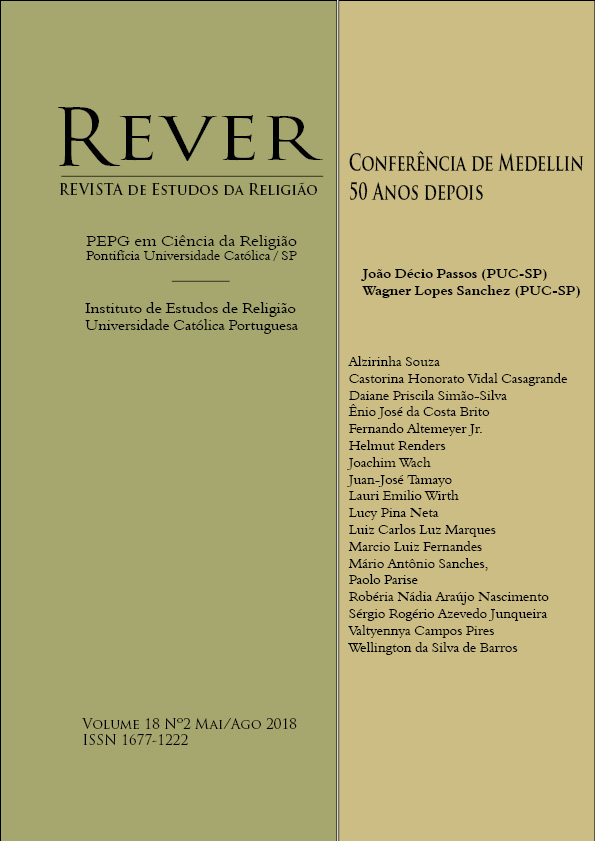The Protestants and the Second Episcopal Conference of Latin America: convergences
DOI:
https://doi.org/10.23925/1677-1222.2018vol18i2a4Keywords:
Protestantism, Social Responsibility, Latin America, EcumenismAbstract
As minor religious groups in Latin American, the Protestants built up their identity closely linked to the opposition to the Roman Catholic Church, at the same time they proposed their religious message influenced by morality and civilization-oriented premises. The social relevance of such Protestantism received divergent interpretations by researchers of the Latin American religious field. On the one hand, the aforementioned Protestantism can be viewed from an imperialistic perspective, mainly in the United States. On the other hand, the Latin American Protestantism might come out as an answer to liberal minorities in the ascendant on our continent, in the second half of the 19th century and in the first half of the 20th. As to social responsibility, the Protestants offered a myriad of assistance-based activities and projects. This article portrays some displacement regarding the social consciousness of such Protestantism in the second half of the 20th century, as discussed in the Second Episcopal Conference of Latin America, in Medellín, Colombia, in 1969. Inspired by a critical perception concerning the social context in Latin America, ecumenism between Catholics and Protestants is likely to flourish.
Downloads
Published
How to Cite
Issue
Section
License
Authors who publish in this journal agree with the following terms:- Authors retain copyright, but grant the journal the right of first publication, with the work simultaneously licensed under the Creative Commons BY-NC License.
- Authors are authorized to assume additional contracts separately, for non-exclusive distribution of the work published in this journal (e.g., publishing in an institutional repository or as a book chapter), as long as with acknowledgment of authorship and first publication in this journal.


